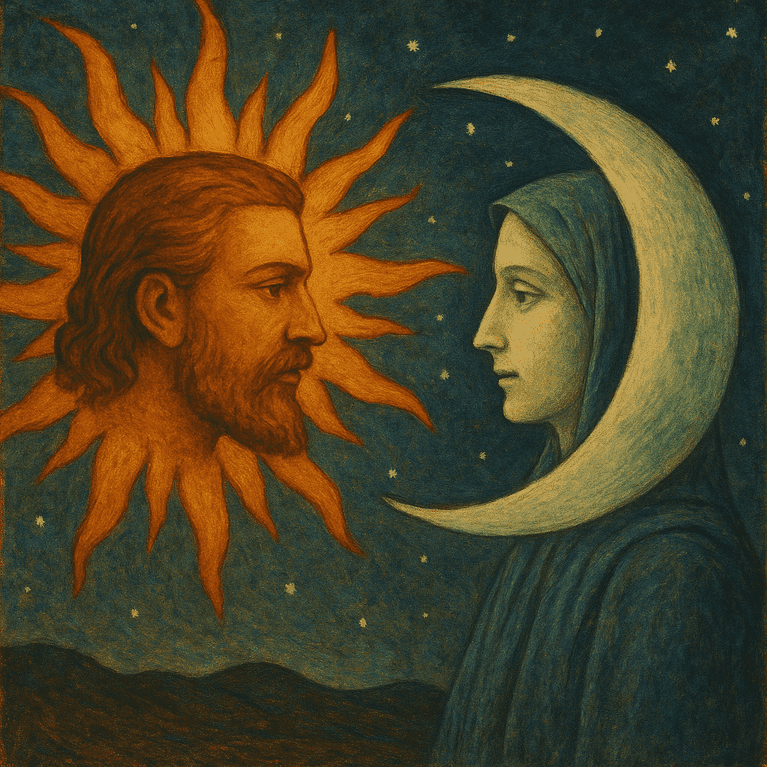In the realm of astrology, the Sun and the Moon form a symbolic cosmic pair—a sacred polarity within the soul of the cosmos. The Sun embodies the masculine principle, the active force, the conscious will. The Moon, his silent companion, represents the feminine principle, the receptive response. Together, they express the dual nature of human existence—outer and inner, action and reaction, light and reflection.
Yet, in our collective perception, the Sun often seems to dominate. When we ask someone, “What’s your sign?”, we usually mean their Sun sign. Rarely do we consider the sign of their Moon—as though the soul matters less than the will. Perhaps this is because the Sun governs the conscious, visible aspects of the self: identity, ambition, personality. The Moon, on the other hand, moves through the invisible currents of emotion, memory, and intuition—less easy to detect, but no less vital.
Let us consider, first, a person with a strong Sun and a weak Moon. This is someone with a powerful outward personality—confident, radiant, commanding attention. They naturally take the spotlight in conversations, effortlessly drawing others toward them. But if their Moon is underactive, they may lack the subtle emotional awareness to sense when their presence begins to overwhelm. They dominate, unconsciously absorbing the psychic space of those around them. And because their inner receptivity is low, they fail to perceive others’ discomfort. Thus, they continue to act in an egocentric way, unaware of the quiet retreat of those around them. In time, people may distance themselves, not because of malice, but because their own need for expression and emotional space has been neglected. A more sensitive Moon would have whispered early warnings—signals of tension or disconnection—prompting the Sun to soften its light.
Now let us take the opposite case: someone with an intensely activated Moon and a weak Sun. Such a person is deeply empathetic, emotionally attuned, sensitive to the moods and unspoken needs of others. They are warm, caring, and often beloved for their gentleness and intuitive understanding.
However, without a sufficiently strong Sun, their outward identity may lack force. They may struggle to assert themselves, to carve their own path, to claim their space in the world. Over time, this emotional sensitivity, while beautiful, becomes a liability. They depend too heavily on others’ moods and decisions, and they risk being overlooked or even exploited. Unless they have someone to constantly support and guide them, they may gradually be pushed to the margins—professionally, socially, even existentially.
What becomes clear, then, is that balance is essential.
The Sun must be strong enough to give the self clarity, purpose, and confidence—to express its will, to shine. But the Moon must also be attuned enough to emotions and to the inner life of others, without being overwhelmed by it—able to feel deeply, yet remain centered. When these two powers are in harmony, the human being becomes whole: firmly rooted in personal identity, yet deeply connected to the emotional world around them.
It’s important to understand that a “strong Sun” and a “strong Moon” mean different things. A strong Sun is active and self-expressive; a strong Moon is not domineering, but emotionally resonant. Her strength lies in her softness: in the soul’s capacity for empathy, for psychic union, for silent connection.
The Sun lights the path—but the Moon softens the journey.

